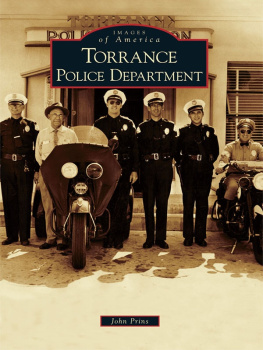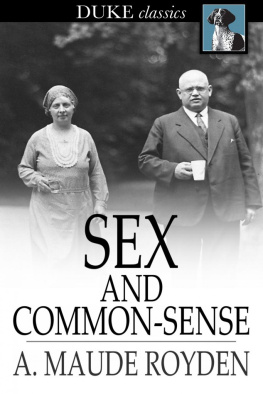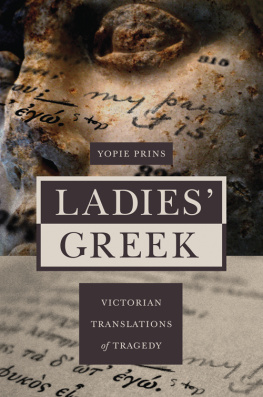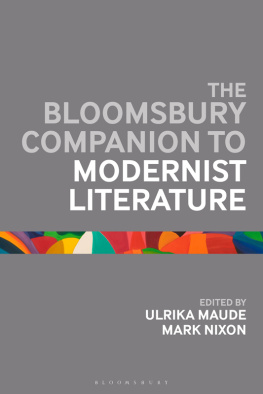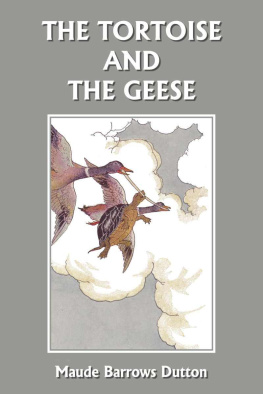Prins Jacomien.Vanhaelen Maude. - Sing Aloud Harmonious Spheres
Here you can read online Prins Jacomien.Vanhaelen Maude. - Sing Aloud Harmonious Spheres full text of the book (entire story) in english for free. Download pdf and epub, get meaning, cover and reviews about this ebook. year: 2018, publisher: Taylor & Francis (CAM), genre: Religion. Description of the work, (preface) as well as reviews are available. Best literature library LitArk.com created for fans of good reading and offers a wide selection of genres:
Romance novel
Science fiction
Adventure
Detective
Science
History
Home and family
Prose
Art
Politics
Computer
Non-fiction
Religion
Business
Children
Humor
Choose a favorite category and find really read worthwhile books. Enjoy immersion in the world of imagination, feel the emotions of the characters or learn something new for yourself, make an fascinating discovery.

- Book:Sing Aloud Harmonious Spheres
- Author:
- Publisher:Taylor & Francis (CAM)
- Genre:
- Year:2018
- Rating:4 / 5
- Favourites:Add to favourites
- Your mark:
- 80
- 1
- 2
- 3
- 4
- 5
Sing Aloud Harmonious Spheres: summary, description and annotation
We offer to read an annotation, description, summary or preface (depends on what the author of the book "Sing Aloud Harmonious Spheres" wrote himself). If you haven't found the necessary information about the book — write in the comments, we will try to find it.
Sing Aloud Harmonious Spheres — read online for free the complete book (whole text) full work
Below is the text of the book, divided by pages. System saving the place of the last page read, allows you to conveniently read the book "Sing Aloud Harmonious Spheres" online for free, without having to search again every time where you left off. Put a bookmark, and you can go to the page where you finished reading at any time.
Font size:
Interval:
Bookmark:
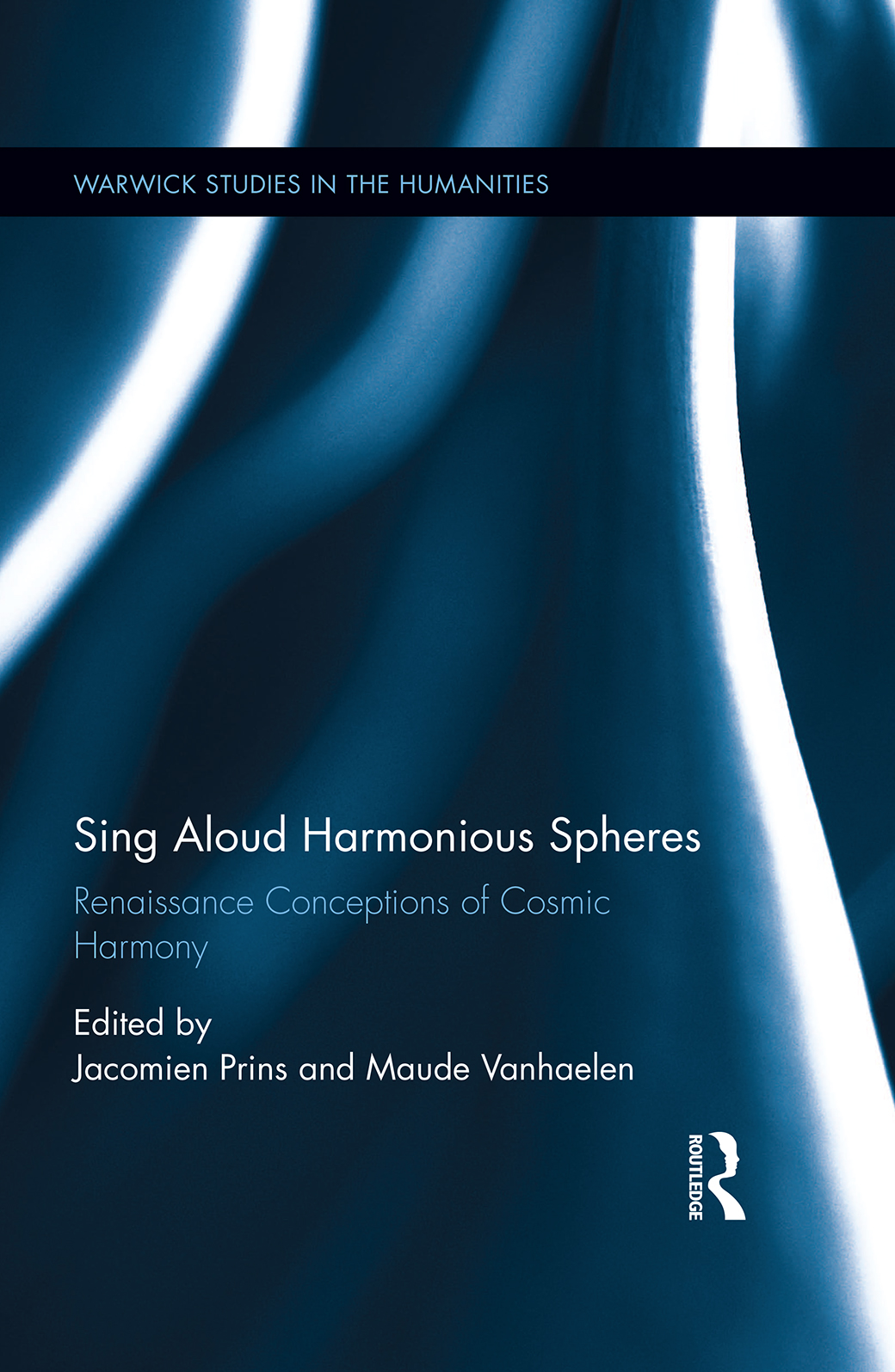
Sing Aloud Harmonious Spheres
This is the first volume to explore the reception of the Pythagorean Doctrine of cosmic harmony within a variety of contexts, ranging chronologically from Plato to eighteenth-century England. This original collection of essays engages with contemporary debates concerning the relationship between music, philosophy, and science, and challenges the view that Renaissance discussions on cosmic harmony are either mere repetitions of ancient music theory or pre-figurations of the Scientific Revolution. Utilizing this interdisciplinary approach, Sing Aloud Harmonious Spheres: Renaissance Conceptions of Cosmic Harmony offers a new perspective on the reception of an important classical theme in various cultural, sequential, and geographical contexts, underlying the continuities and changes between Antiquity, the Middle Ages, and the Renaissance. This project will be of particular interest within these emerging disciplines as they continue to explore the ideological significance of the various ways in which we appropriate the past.
Jacomien Prins is a Global Research Fellow at the Institute of Advanced Studies (IAS) and the Centre for the Study of the Renaissance (CSR) of the University of Warwick. She has worked extensively on the interaction between music theory and philosophy in the Renaissance. Her work includes Harmonisch labyrint (2007), Echoes of an Invisible World: Marsilio Ficino and Francesco Patrizi on Cosmic Order and Music Theory (2014) and Marsilio Ficino: Commentary on the Timaeus (forthcoming).
Maude Vanhaelen is Associate Professor in the Departments of Classics and Italian at the University of Warwick. She has published articles on the reception of Platonism in fifteenth- and sixteenth-century Italy. She is the author of Marsilio Ficino: Commentary on the Parmenides (2012).
Warwick Studies in the Humanities
Series editor: Karen OBrien, Loredana Polezzi and Samantha Haigh
University of Warwick, UK
The Humanities Research Centre of the University of Warwick in collaboration with Routledge has relaunched its book series. Warwick Studies in the Humanities aims to bring together innovative work of a high academic standard which crosses disciplinary borders in the arts and humanities. It provides a forum for volumes exploring new dimensions of cultural history from the early modern period to the present, and for works that investigate aspects of contemporary cultural production within and across national boundaries. The series reflects the breadth of the interdisciplinary work carried out at Warwicks Humanities Research Centre, and includes work of both European and extra European scope.
Series Advisory Board:
Susan Bassnett, University of Warwick, UK
David Bradshaw, Worcester College, University of Oxford, UK
Chris Clark, University of Connecticut, USA
Stuart Clark, Swansea University, UK
Richard Dyer, Kings College London, UK
Jo Labanyi, New York University, USA
Carolyn Steedman, University of Warwick, UK
First published 2018
by Routledge
711 Third Avenue, New York, NY 10017
and by Routledge
2 Park Square, Milton Park, Abingdon, Oxon OX14 4RN
Routledge is an imprint of the Taylor & Francis Group, an informa business
2018 Taylor & Francis
The right of the editors to be identified as the authors of the editorial material, and of the authors for their individual chapters, has been asserted in accordance with sections 77 and 78 of the Copyright, Designs and Patents Act 1988.
All rights reserved. No part of this book may be reprinted or reproduced or utilised in any form or by any electronic, mechanical, or other means, now known or hereafter invented, including photocopying and recording, or in any information storage or retrieval system, without permission in writing from the publishers.
Trademark notice: Product or corporate names may be trademarks or registered trademarks, and are used only for identification and explanation without intent to infringe.
Library of Congress Cataloging-in-Publication Data
Names: Prins, Jacomien. | Vanhaelen, Maude.
Title: Sing aloud harmonious spheres: Renaissance conceptions of cosmic harmony / edited by Jacomien Prins and Maude Vanhaelen.
Description: New York: Routledge, 2017. | Series: Warwick series in the humanities | Includes bibliographical references and index. | Description based on print version record and CIP data provided by publisher; resource not viewed.
Identifiers: LCCN 2017017888 (print) | LCCN 2017028215 (ebook)
Subjects: LCSH: MusicPhilosophy and aesthetics. | PythagorasInfluence. | Harmony of the spheres. | Philosophy, Renaissance.
Classification: LCC ML3800 (ebook) | LCC ML3800 .S57 2017 (print) | DDC 113dc23
LC record available at https://lccn.loc.gov/2017017888
ISBN: 978-1-138-06346-4 (hbk)
ISBN: 978-1-315-16103-7 (ebk)
Typeset in Sabon
by codeMantra
This book grew out of the international conference Sing aloud Harmonious Spheres: Music, Philosophy and the Order of the Universe in the Renaissance organized at the University of Warwicks Palazzo Papafava in Venice in May 2011. The conference was made possible thanks to generous support of the Roberts Fund, Warwicks Humanities Research Fund, as well as the Departments of Classics and Italian, and Wolfson College, Oxford. We would also like to thank Chiara Croff, the administrator of Warwicks Palazzo Papafava for her invaluable help before and during the conference.
During the publication of the conference proceedings, the University of Warwicks Institute of Advanced Study (IAS) generously provided funding to cover expenses related to editorial work and proofreading. We are grateful to Aileen Das and Penelope Gouk, whose diligent and dedicated proofreading did much to make the writing clearer. We claim sole responsibility for any remaining flaws and errors.
Jacomien Prins and Maude Vanhaelen
Jacomien Prins and Maude Vanhaelen
The present volume aims to explore the Renaissance reception history of the Pythagorean doctrine of world harmony. Its title is inspired by the anonymous song Sing aloud harmonious spheres, which expresses a desire to discover the hidden music of the planetary spheres:
Sing aloud, harmonious spheres;
Let your concord pierce Joves ears;
Play your old lessons over again;
Keep time in every strain.
For now the gods do listen to your lays,
As they are passing,
Over the Milky Ways.
Scorch not fire, nor freeze thou, air,
Whilst your deities be there;
Hence, you clouds and airy meteors,
Fogs and such unwholesome creatures.
Keep all your regions pure, all passage fair,
Now, ye blest spirits,
Wander in the air.
Sweetly, sweetly, lovely mirth
Kiss the bosom of the earth;
Make them garlands of the spring,
Send for all the birds to sing.
The gods approach; I hear their fluttering sound,
And now, now, now,
They touch the ground.
In a playful way the song expresses a tension, typical in the seventeenth century in Western Europe, between the fascination for the ancient doctrine of the harmony of the spheres and the growing realization that it was no longer an adequate model to describe the physical universe. The planetary deities, or Sirens, who in Platos myth of Er (Republic, 617b47) sit singing on the planetary orbits, are called upon in this song to sing aloud their harmonious sound. Yet, when the prayer is answered and the gods approach, nothing more than a fluttering sound is heard. As soon as the heavenly harmonious sound touches the ground mortal beings are unable to hear, recognize or understand it. Though the Renaissance is a period of rediscovery of lost ancient knowledge, the very essence of the doctrine of the harmony of the spheres continues to be perceived as hidden from the senses, leading to extraordinary and innovative restatements, transformations and adaptations, which form the core of this book.
Font size:
Interval:
Bookmark:
Similar books «Sing Aloud Harmonious Spheres»
Look at similar books to Sing Aloud Harmonious Spheres. We have selected literature similar in name and meaning in the hope of providing readers with more options to find new, interesting, not yet read works.
Discussion, reviews of the book Sing Aloud Harmonious Spheres and just readers' own opinions. Leave your comments, write what you think about the work, its meaning or the main characters. Specify what exactly you liked and what you didn't like, and why you think so.

